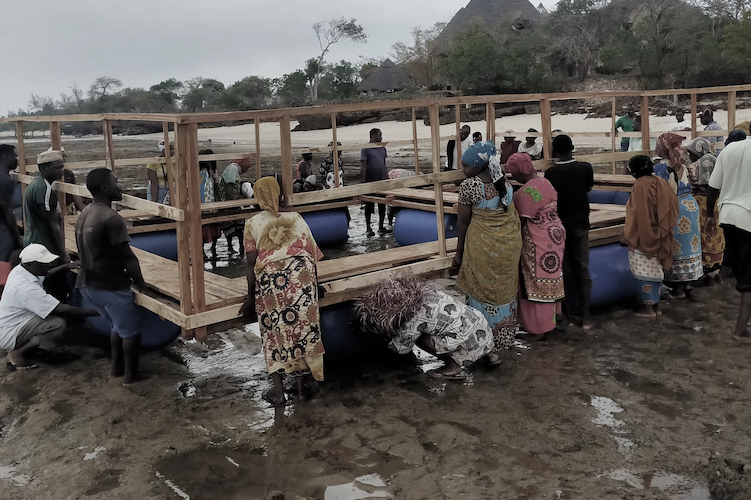The project will profile and document gender responsive challenges and opportunities for commercial and sustainable adoption of fish-seaweeds for economic development of coastal fisher communities.
ACTS is spearheading a new project that aims to empower women in Kenya’s coastal region to optimally and sustainably exploit the lucrative blue economy.
Dubbed the Blue Empowerment project, the initiative will specifically support women in Kilifi and Kwale counties through adoption of climate-smart integrated multi-trophic aquaculture (IMTA) of seaweeds and fish for improved livelihoods and resilience. The project will also promote adoption of sustainable and inclusive IMTA business models.
It will work closely with the Beach Management Units (BMUs), technological institutions, women groups, private sector, policy makers and other stakeholders in the blue economy to study, co-design, deploy model IMTA farms and use them as platforms to gain practical insights, evidence and generate data for adoption towards sustainable development in the coastal region.
It will also map socio-technical pathways that can support enabling policies, technology uptake, and governance frameworks for IMTA adoption and women fisherfolk empowerment while at the same time design, set-up, test and optimise gender transformative fish-seaweeds IMTA solutions for the socio-economic empowerment, COVID-19 and climate change resilience of fisher women.

Mwazaro community launching a locally constructed cage to the sea in Kwale. The project aims to empower women in Kenya’s coastal region to optimally exploit the blue economy.
At the same time, the project will aim to promote knowledge translation, dissemination and learning for IMTA systems upscaling, climate change and COVID-19 response strategies for the local community and women empowerment in the targeted counties.
Apart from ACTS, other implementing partners include the Kenya Industrial Research and Development Institute (KIRDI), Bahari CBO Network, Kenya Marine and Fisheries Research Institute (KMFRI), Kenyatta University (KU), C-Weeds Corporation Ltd, and the people of Kilifi and Kwale counties in Kenya. It kicked off in March 2022, and will run until August 2024.
Download

